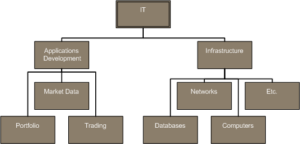One of the main benefits of a lean/kanban approach to IT is the simplification of processes expressed in the value stream of each team. But IT teams are sometimes indoctrinated with process frameworks coming from approaches such as COBIT® or ITIL®. They may be at a loss to understand how a single value stream can […]
kanban
Do we really need service desks?
I have recently been investigating provocative and heretical ideas. Among them are the very hard questions concerning radical service provider reorganization. I have found that some of the reasons why service desks have been valuable contributions to service provider organizations are perhaps no longer justified. I would like to start a discussion around this question: […]
The Goal of Incident Management
ITIL®‘s version of the goals of incident management According to the latest version of ITIL®, the goal of incident management is “…to restore normal service operation as quickly as possible and minimize the adverse impact on business operations…”¹ So there are really two goals mentioned: to restore as quickly as possible and to minimize impact. […]
Can we really not multi-task?
Can the human brain multi-task? The loss of efficiency and effectiveness due to context switching among various tasks is one of the underpinning tenets of why a Kanban approach helps organizations to reduce the lead times of their work. But is it really true that the human brain cannot multi-task?
Stopping the clock vs. waiting time
Stopping the clock is a pernicious practice There is a tradition among certain service providers to “stop the clock” when measuring process cycle time. They consider that any process activity under the responsibility of someone other than the service provider should not count against the agreed service level. There are two main cases: when the […]
Organizing for Kanban
When Kanban decides against lower lead times Certain organizations applying Kanban principles may choose not to include IT operations specialists in cross-functional teams, on the assumption that it would be very hard to keep such specialists busy. These organizations prefer, instead, to group the operations specialists in their own teams, thereby increasing the risk that […]
Psychology, Flow and Kanban
Kanban and Flow The benefits accrued to an organization by adopting Kanban methods are closely related to the concept of flow as described by Mihály Csíkszentmihályi (Flow: The Psychology of Optimal Experience, New York: Harper and Row, 1990). Having a social scientific underpinning for Kanban, we may be assured that it is not just a flash-in-the-pan […]




